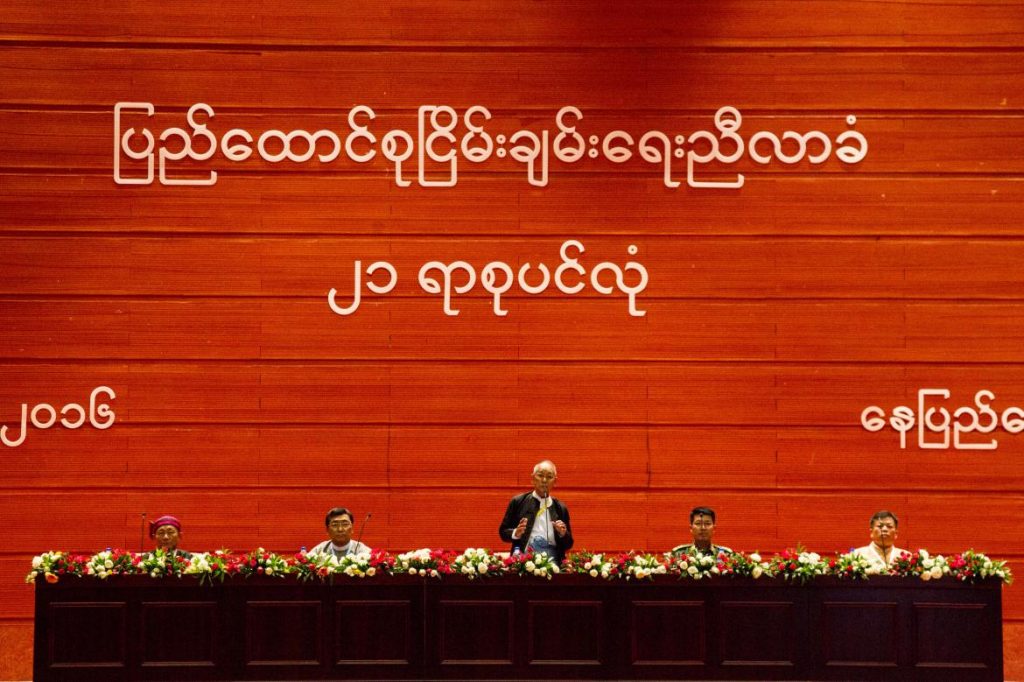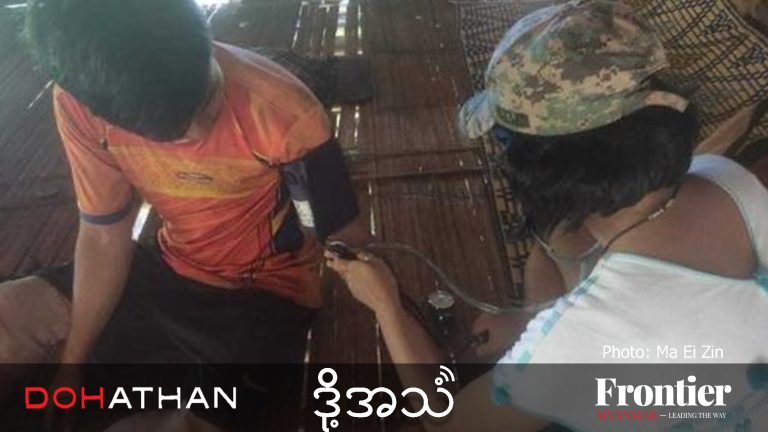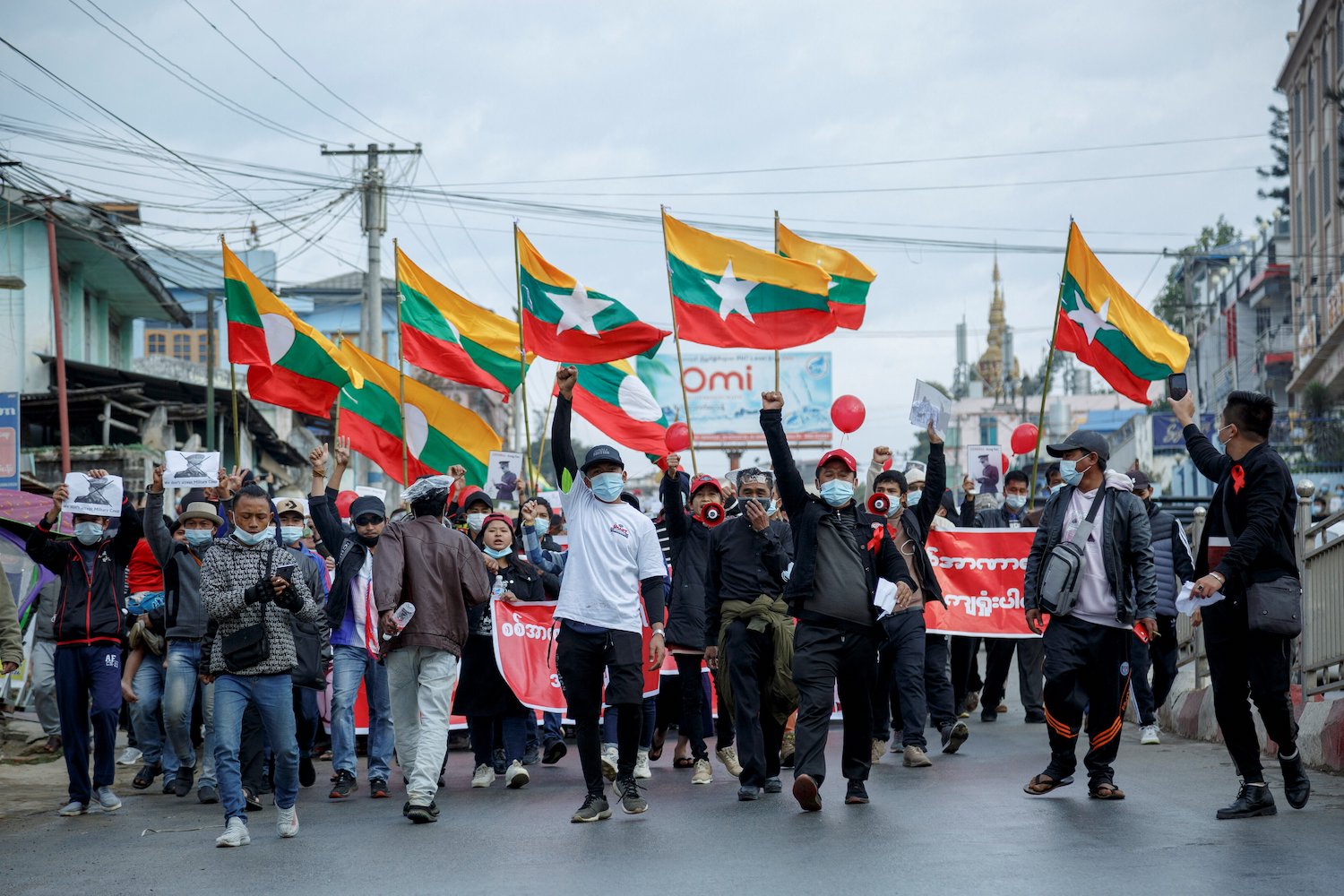By NYAN HLAING LYNN | FRONTIER
NAY PYI TAW — The government has confirmed plans to delay the 21st Century Panglong conference to the second half of March, after the United Wa State Army scheduled a meeting with ethnic armed groups for later this month.
The Wa-organised gathering means the government will be unable to hold planned talks with the United Nationalities Federal Council – a bloc comprising most armed groups that have not signed the nationwide ceasefire – before the end of the month.
“We will delay the second 21st Century Panglong conference to the end of March,” said U Zaw Htay, deputy director general in the President’s Office.
He added that it would take place some time after the Karen National Union Conference, which begins on March 14.
Support more independent journalism like this. Sign up to be a Frontier member.
The 21st Century Panglong Union Peace Conference – the second such meeting organised by the government – was originally scheduled to begin on February 28. Because only ceasefire signatories are allowed to attend as participants, pressing ahead according to the original date would have meant most armed groups were not present, seriously compromising the credibility of the process.
Speaking in the town of Panglong on February 12 for a ceremony to mark Union Day, State Counsellor Daw Aung San Suu Kyi urged all ethnic armed groups to sign the ceasefire and attend the next Union Peace Conference.
In an effort to convince non-signatories to attend, the government had invited the UNFC to meet on February 23 or 24. But U Khu Oo Reh, the group’s secretary, said these dates were rejected because not all members were available.
“If we attend the meeting without a full complement [of members], we are afraid that the meeting might not be taken seriously.”
Further complicating matters, Khu Oo Reh said the UWSA – the country’s most powerful non-state armed group, with an estimated 20,000 soldiers – had sent out invitations to meet at its headquarters in Panghsang, Shan State, later this month.
He did not confirm the date or which groups had been invited to the meeting.
“It’s not a conference. Invitation letters were sent to some ethnic armed groups by the UWSA. Maybe it’s a meeting, but the title of the meeting has not been stated. I don’t know for sure which groups have been invited,” Khu Oo Reh said.
The UWSA could not be reached for comment.
Padoh Saw Kwe Htoo Win, general secretary of the KNU, confirmed that his group had not received an invitation.
Zaw Htay said the government now hoped to meet the UNFC in early March, although a date had not yet been set. “We are planning to meet with UNFC before the 21st Century Panglong conference,” he said.
He declined to comment on the Panghsang summit. “This issue is being discussed with the peace commission.”
The government has also relented on an earlier decision by the Union Peace Dialogue Joint Committee to delay national-level political dialogue meetings in Chin and Rakhine states. At the February 6 UPDJC meeting, participants agreed there was not enough time to convene the talks before the next Panglong meeting.
But this decision angered ethnic Chin and Rakhine representatives, who accused the government of dragging its feet in holding the dialogue. The government has since relented, with the dialogue meetings now due to be held later this month.
U Than Soe Naing, a political commentator who served in an ethnic Wa battalion within the Communist Party of Burma from 1975 to 1989, said the UWSA likely organised the conference out of concern that it may be targeted by the Tatmadaw.
“The Wa ethnic armed group leaders are worried that they might be attacked while the Tatmadaw is waging fierce offensives in northern Myanmar,” he said. “Meanwhile, non-signatories seem like they were already planning to meet before the second 21st Century Panglong conference.”







